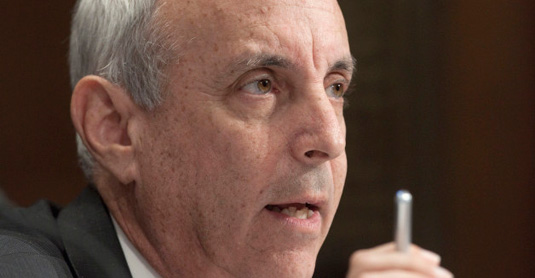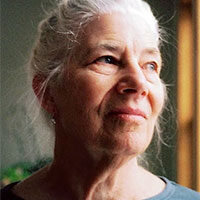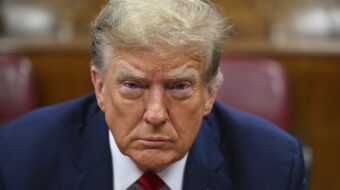
CHICAGO – Who the Democratic Party nominee for president will be is not the only issue at stake in this Spring’s primary elections, Larry Cohen, a leader of the labor for Bernie Sanders group told a gathering of labor activists at the Sanders headquarters here this week.
Cohen, the retired president of the Communications Workers of America, said that the state-by-state fight for delegates is also a fight for democracy in the Democratic Party and the building of “a different type of movement about working people.” Cohen added, “Part is about Bernie, the other part is to talk about what democracy looks like.”
Delegates pledged to Sanders who have been elected so far total 371, not far behind Clinton’s 459, said Cohen. He projected moves at the convention for elimination of the undemocratic super-delegate system, a party ban on super pac funds in primaries, and a platform that includes the Fight for 15 and Medicare for All. “And no more rotten trade deals!” he added.
In addition to continuing the election of Sanders delegates the plan includes insuring a big presence outside as well as inside the Philadelphia convention in July, Cohen said. “We need to change the structure of the party so it’s not so top down.”
Cohen harkened back to the gains of the Jesse Jackson candidacy in 1988. At that time, Jackson delegates succeeded in their campaign to introduce proportional allocation of delegates in Democratic primaries in every state.
This means that the delegate pool of each state is divided among the candidates in proportion to the vote they get in that state after a threshold of 15 percent is reached. Previously it had been left to the discretion of state Democratic Party organizations to opt for “winner-take-all” contests.
The proportional vote victory has meant that challengers such as Sanders have a chance to gather delegates from every state and participate in a convention that much more fairly represents the nationwide vote totals. The “winner take all” system replicates the injustices of the Electoral College, even making possible the defeat of a candidate with majority vote, said Cohen.
Cohen was joined at the labor meeting by Jonathan Jackson, a son of Rev. Jesse Jackson and also a leader in the Sanders campaign. Emphasizing the importance of the role of the delegates to the Democratic convention, Jackson stated that without the democratic reforms achieved by Rev. Jackson’s insurgent 1988 Democratic primary campaign at that year’s convention it would not have been possible 20 years later for Barack Obama to defeat Hillary Clinton in 2008.
Frank Watkins, who served as political director of Jackson’s 1988 campaign, explained in a phone interview that the Jackson delegates fought hard for rules that would require proportional representation in every state. So when in 2008 Hillary Clinton won majorities in many big states – Florida, Pennsylvania, New York, California – she still had to share those big delegate pots proportionately with candidate Obama. Had the winner-take-all system still been in place, she, not Obama would have had the delegates to clinch the nomination, Watkins said.
But this democratic advance is undermined by the super delegate formula, which appoints hundreds of governors, mayors, senators, members of Congress and even “distinguished former elected officials” as automatic delegates. Under the present rules, 712 of these unelected “super” delegates will each have voting power on par with each of the 4,051 elected delegates. Thus 15 percent of the convention votes will come from unelected delegates.
Cohen, a veteran organizer who is widely respected among labor rank and filers as the founder of the activist group Jobs with Justice, described the role of the volunteer sign-up forms being handed out at the gathering for attendees to take to their work places (to be distributed in non-work areas on non-work time, the veteran organizer emphasized).
“We are building something permanent. We have to build on existing local movements. We’re going to build a different type of movement about working class people with new lists, new information and a new voice for labor,” he said.
Photo: Larry Cohen, long time and now retired leader of the Communications Workers of America, talked about how the Sanders campaign can democratize the Democratic Party. | AP












Comments